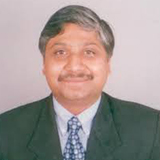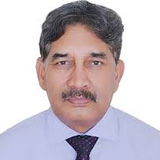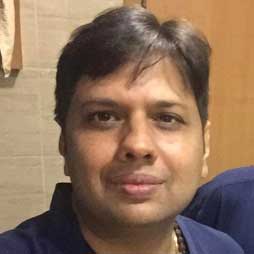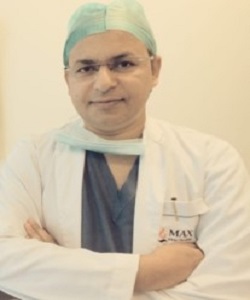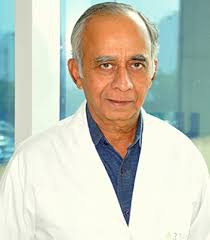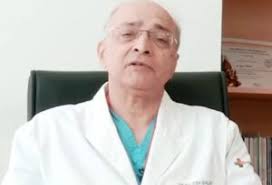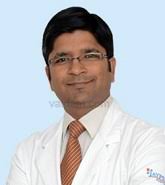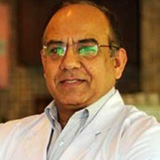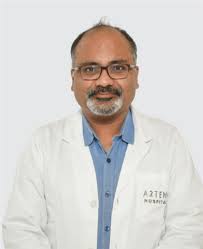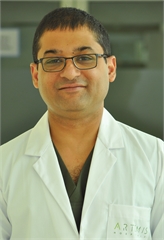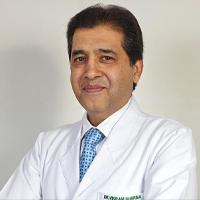Transurethral Resection Prostate TURP Surgery IN INDIA
Prostate health is a significant concern for men, especially as they age. Benign Prostatic Hyperplasia (BPH), a common condition among older men, often leads to discomfort and complications if left untreated. The condition affects the prostate gland, causing it to enlarge and obstruct the flow of urine. While lifestyle modifications and medications may help manage early symptoms, surgical intervention becomes necessary in advanced cases.
Transurethral Resection of the Prostate (TURP) is a minimally invasive surgical procedure widely recognized as the gold standard for treating BPH. Known for its effectiveness and quick recovery time, TURP has become a preferred option for many patients globally, including in India, where high-quality and cost-effective medical care attracts numerous individuals seeking this treatment. This article provides a comprehensive overview of TURP surgery in India, offering essential insights to guide informed decision-making.
What is BPH?
Benign Prostatic Hyperplasia (BPH) refers to a non-cancerous enlargement of the prostate gland, a common condition that primarily affects older men. The prostate gland is located below the bladder and surrounds the urethra, the tube responsible for carrying urine from the bladder out of the body. As men age, hormonal changes can cause the prostate to grow. When the prostate enlarges, it can compress the urethra, leading to partial obstruction and difficulties in urination. While BPH is not life-threatening, the symptoms can significantly impact a person’s quality of life if left untreated.
Symptoms of BPH
The symptoms of BPH range from mild to severe and tend to worsen over time. Common symptoms include:
- Frequent Urination: A persistent need to urinate, often more pronounced during the night (a condition known as nocturia).
- Weak Urinary Stream: Difficulty maintaining a steady flow of urine, often characterized by dribbling at the end of urination.
- Difficulty Starting or Stopping Urination: A delay in initiating urination or an inability to completely stop the flow of urine.
- Incomplete Bladder Emptying: A sensation that the bladder has not been fully emptied, even after urinating.
- Urgency to Urinate: A sudden, strong urge to urinate that can be difficult to control.
In more severe cases, BPH can lead to complications such as urinary tract infections (UTIs), bladder stones, or kidney damage due to prolonged urinary retention.
Why is TURP Surgery Recommended?
Transurethral Resection of the Prostate (TURP) is widely regarded as the gold standard surgical treatment for BPH, particularly for moderate to severe cases. It is recommended when:
- Medications Are Ineffective: Patients who have not found relief from symptoms despite using prescribed medications like alpha-blockers or 5-alpha reductase inhibitors may require surgical intervention.
- Significant Urinary Obstruction: When the enlarged prostate causes severe urinary retention, making it difficult or impossible to urinate naturally.
- Recurrent Complications: Frequent urinary tract infections, bladder stones, or hematuria (blood in the urine) due to BPH indicate the need for surgery.
- Impact on Quality of Life: Severe urinary symptoms, including sleep disruption from nocturia and the inability to carry out daily activities comfortably, warrant TURP surgery.
Benefits of TURP Surgery
TURP is a minimally invasive procedure with proven efficacy in providing long-term relief from BPH symptoms. Key benefits include:
- Restoration of Normal Urinary Function: TURP removes the obstructive prostate tissue, allowing urine to flow freely through the urethra.
- Quick Symptom Relief: Most patients experience significant improvement in symptoms shortly after the procedure.
- Minimally Invasive Approach: The procedure is performed without external incisions, reducing recovery time and the risk of complications.
- Improved Quality of Life: Relief from persistent urinary symptoms allows patients to resume normal activities and enjoy a better quality of life.
TURP surgery remains a trusted solution for men experiencing significant discomfort and complications from BPH, offering a safe and effective pathway to recovery.
The TURP Surgery Procedure: A Comprehensive Overview
Preoperative Preparations
Preparing for Transurethral Resection of the Prostate (TURP) surgery involves several essential steps to ensure the procedure’s safety and effectiveness.
- Comprehensive Evaluation
The medical team conducts a series of diagnostic tests to assess the condition and determine the extent of prostate enlargement. Key evaluations include:
- Ultrasound: To visualize the prostate and surrounding tissues.
- Uroflowmetry: Measures the flow rate of urine to evaluate urinary obstruction.
- Cystoscopy: Allows direct visualization of the urethra and bladder.
Additionally, blood and urine tests are performed to rule out infections or other medical concerns and confirm the patient is fit for surgery.
- Medication Adjustments
Patients are advised to stop blood-thinning medications like aspirin or warfarin at least a week before surgery to minimize the risk of bleeding during the procedure. - Dietary Restrictions
Fasting is mandatory for 6-8 hours before the surgery. A light, easily digestible diet is recommended the day prior to avoid complications during anesthesia. - Counseling and Informed Consent
The surgeon explains the procedure, potential risks, benefits, and recovery expectations in detail. This ensures the patient is well-informed and confident about the surgery.
Step-by-Step TURP Surgery Procedure
- Anesthesia Administration
The procedure begins with administering spinal or general anesthesia, ensuring the patient remains pain-free and comfortable throughout the surgery. - Insertion of the Resectoscope
A resectoscope, a specialized surgical instrument equipped with a camera and an electrical loop, is gently inserted through the urethra. This eliminates the need for any external incisions. - Removal of Prostate Tissue
The surgeon uses the electrical loop to carefully excise the obstructive prostate tissue in small segments, which are then flushed out of the bladder. - Flushing and Cleaning
After tissue removal, the bladder is irrigated with sterile fluid to remove residual fragments and ensure the urinary pathway is clear. - Catheter Placement
A temporary urinary catheter is inserted to drain urine and promote healing. This catheter also helps prevent urinary retention immediately after surgery. - Duration of Surgery
The entire procedure typically takes 60 to 90 minutes, depending on the size of the prostate and the complexity of the case.
Postoperative Care and Recovery
- Immediate Post-Surgery Care
- Patients are monitored in the recovery room for a few hours to ensure stable vitals and recovery from anesthesia.
- The urinary catheter remains in place for 1-3 days to assist with urine drainage and minimize discomfort.
- Hospital Stay
- Most patients are discharged within 2-3 days, although this may vary based on individual recovery progress.
- Recovery Guidelines
Following surgery, patients must adhere to specific guidelines for a smooth recovery:
- Pain Management: Mild discomfort or a burning sensation during urination is common and can be managed with prescribed medications.
- Hydration: Drinking plenty of fluids helps flush out any remaining debris and promotes bladder health.
- Physical Activity: Strenuous activities, heavy lifting, and prolonged sitting should be avoided for 4-6 weeks to prevent strain on the pelvic region.
- Dietary Adjustments: A high-fiber diet is recommended to prevent constipation, which can exert pressure on the healing area.
- Follow-Up Appointments: Regular visits to the doctor are crucial to monitor healing and ensure the procedure’s success.
Cost of TURP Surgery in India
India is a preferred destination for TURP surgery due to its combination of high-quality care and affordability. Below is a cost breakdown:
| Expense Category | Cost in INR | Cost in USD |
| Preoperative Tests and Consultations | ₹5,000 – ₹15,000 | $60 – $180 |
| TURP Surgery (Including Hospital Stay) | ₹1,50,000 – ₹2,50,000 | $1,800 – $3,000 |
| Medications and Postoperative Care | ₹10,000 – ₹25,000 | $120 – $300 |
Factors Affecting the Cost of TURP Procedure
The cost of the Transurethral Resection of the Prostate (TURP) procedure can vary significantly based on several factors:
- Hospital Location and Type
- Premium hospitals in metropolitan cities generally charge more due to advanced facilities and higher operational costs.
- Smaller hospitals or those in non-metropolitan areas may offer more affordable options.
- Surgeon’s Expertise
- Highly experienced and renowned urologists may charge higher consultation and surgical fees.
- Surgeons with specialized expertise in TURP or minimally invasive techniques may also command premium fees.
- Medical Tests and Preoperative Evaluations
- Diagnostic tests like ultrasound, uroflowmetry, blood, and urine tests add to the total cost.
- Additional health evaluations for patients with pre-existing conditions can increase expenses.
- Type of Anesthesia Used
- The choice between spinal and general anesthesia may influence costs, with general anesthesia typically being slightly more expensive.
- Complexity of the Procedure
- Patients with larger prostates or more severe symptoms may require longer surgery durations and additional medical interventions, increasing costs.
- Hospital Stay and Room Category
- The length of the hospital stay (2-3 days on average) and choice of room (general ward, private, or deluxe rooms) significantly affect the overall expense.
- Postoperative Medications and Care
- Costs for pain relief, antibiotics, and other postoperative medications vary.
- Follow-up visits and additional treatments required for managing complications can add to the total expenditure.
- Insurance Coverage
- Patients with health insurance may find a significant portion of the costs covered, depending on their policy and its inclusions.
Why Choose Al Afiya Medi Tour for TURP Surgery?
- World-Class Medical Expertise
Al Afiya Medi Tour partners with leading hospitals and experienced urologists across India, ensuring superior medical care tailored to individual needs. - Affordable Treatment Packages
Transparent and cost-effective packages include all aspects of treatment, from diagnostic tests to postoperative follow-ups. - Personalized Assistance
Dedicated coordinators provide end-to-end support, including hospital appointments, travel arrangements, and accommodation. - Seamless International Support
International patients benefit from services like visa assistance, airport transfers, and multilingual support for a hassle-free experience. - Comprehensive Care
Al Afiya Medi Tour handles all logistical and medical requirements, allowing patients and their families to focus solely on recovery.
Top Transurethral Resection Prostate TURP Surgery Doctors in India
The right doctor to consult for a Transurethral Resection Prostate TURP Surgery case.
Dr. Sujit Chaudhary
Year of experience: 20 Years of Experience
Dr. Pratap Bahadur Singh
Year of experience: 28 years of experience
Dr Saurabh Joshi
Year of experience: 5+ years of experience
Dr. Amit K. Devra
Year of experience: 26
Director & Consultant at Jaypee Hospital
Dr. Anant Kumar
Year of experience: 44
Senior Consultant at Max Super Speciality Hospital, Saket, Delhi
Dr. Mandeep Dhanda
Year of experience: 10 years of experience
Dr. Rajeev Sood
Year of experience: 30+
Senior Consultant at Marengo Asia Hospitals Formerly W Pratiksha Hospital, Gurgaon
Dr. Rajesh Ahlawat
Year of experience: 40+ Years of Experience
Dr. Shailendra Goel
Year of experience: 18 years of experience
Dr. Suresh Kumar Rawat
Year of experience: 15 Years of Experience
Dr. Varun Mittal
Year of experience: 11+ Years of Experience
Dr. Vikram Barua Kaushik
Year of experience: 16 years of experience
Dr. Vikram Sharma
Year of experience: 29 years of experience
Looking For The Best Doctor & Hospital?
Fill up the form and get assured assitance within 24 hrs!
FAQs
- Is TURP surgery painful?
No, TURP surgery is performed under anesthesia, ensuring a pain-free experience during the procedure. Mild discomfort may be experienced during recovery. - How long does it take to recover from TURP?
Most patients resume normal activities within 4-6 weeks, although full recovery may vary based on individual health. - Are there any risks associated with TURP?
Common risks include mild bleeding, infection, or temporary urinary incontinence, which usually resolve during recovery. - Can TURP surgery cure BPH permanently?
TURP provides long-term relief from symptoms, but in rare cases, BPH symptoms may recur over time. - How long will I need to stay in the hospital?
Patients typically stay for 2-3 days, depending on recovery progress and overall health. - Is TURP surgery suitable for all BPH patients?
TURP is recommended for patients with moderate to severe symptoms unresponsive to medication or for those experiencing complications like urinary retention. - Will I need a catheter after surgery?
Yes, a catheter is placed for 1-3 days post-surgery to drain urine and aid in healing. - Why is India a popular choice for TURP surgery?
India offers high-quality medical care at a fraction of the cost in Western countries, with experienced surgeons and state-of-the-art facilities.
By understanding the TURP procedure and preparing for surgery, patients can make informed decisions and look forward to a successful recovery with improved quality of life.
- Which is the best hospital for TURP surgery in India?
India has several reputed hospitals offering TURP surgery with state-of-the-art facilities and experienced urologists. Some of the top choices include:
- Apollo Hospitals (Multiple Locations)
- Fortis Hospitals (Delhi, Mumbai, Bangalore)
- Max Healthcare (Delhi and NCR)
- Manipal Hospitals (Bangalore and Chennai)
- Medanta – The Medicity (Gurgaon)
- Who is the best doctor for TURP surgery in India?
India is home to many experienced urologists specializing in TURP surgery. Some notable names include:
- Dr. Rajesh Ahlawat (Medanta, Gurgaon) – A renowned urologist with expertise in minimally invasive and robotic urology surgeries.
- Dr. Anant Kumar (Max Healthcare, Delhi) – Known for his vast experience in urological and transplant surgeries.
- Dr. Mohan Keshavamurthy (Fortis Hospitals, Bangalore) – An expert in advanced urological procedures.
- Dr. Narmada Prasad Gupta (Apollo Hospitals, Delhi) – A pioneer in urology with extensive experience in TURP.
Dr. Suresh Kumar Rawat (Manipal Hospitals, Bangalore) – Specializes in endoscopic and minimally invasive urology.
Get FREE Evaluation
Treatment plan and quote within within 24 hrs!
Let us help you
Get your personalized Estimate Now
Top Doctors & Surgeons in India
Best Hospitals in India
Best Treatments in India
Indian Medical Visa From
Copyright © 2025 Al Afiya Medi Tour | All Rights Reserved.

